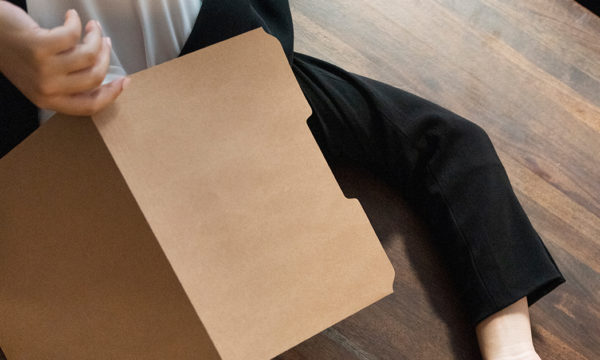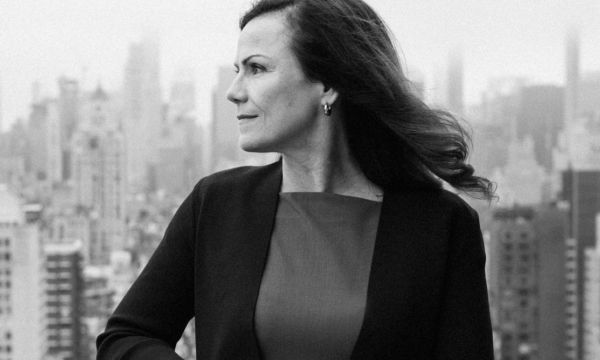
Shop This Look
The Mental Health Stigma I Didn't Realize I Believed
M.M.’s Art Director opens up about struggling with mental health in the workplace.
I learned something in therapy the other night. I often learn things in therapy, which is kind of the whole point (and how I justify paying out of pocket for each session, since mental health coverage is basically non-existent in the U.S.). But in this particular session, I learned I have a stigma against myself. Even as a person who is diagnosed with both clinical depression and a handful of anxiety disorders, I still find myself thinking that when it comes to work, anxiety is productive and depression is lazy. It’s wrong, but sometimes it feels really true. Let me explain.
In 2018, I suffered a brain injury when I was hit by a car as a pedestrian in a hit and run. For six months, I was unable to go to work. I completely lost my confidence. I lost the ability to sit in front of a computer for eight hours a day, and I started having daily panic attacks. Somewhere in the middle of that, I interviewed and got my dream job, thus making a career pivot I had wanted to make for years. But—and it’s a big but—I was not okay. My solution? The age-old career advice to “fake it till you make it.” Pretend to be fine at all costs. No matter what, protect yourself, hide away the “imperfect” parts of you, and appear as “normal” as humanly possible. Work harder, faster, and longer—and by all means, power through anything that could jeopardize this gift of a job.

“For me, depression was an exhaustion that wouldn’t lift—a fog that clouded my brain, hid my good ideas, and made my tongue heavy.”
At the beginning, meetings were the worst part. If you put me in a room with a group of people who would notice if I got up and left, I was almost guaranteed to have a panic attack. I spent the majority of meetings waffling back and forth between furiously typing notes and trying to pay enough attention to distract myself from the heart pounding, hands shaking, and lightheadedness clouding my brain. I was so focused on seeming okay that there wasn’t enough brain power left to contribute to the meetings. I strategically sat as close to the exit as possible, and as soon as the meeting was over, I was out of that room so fast there could have been a cartoon puff of smoke in my wake. From there, I would retreat to the bathroom or outside around the corner and let the full panic attack wash over me. I did that almost every day for six months.
Then the weekends would come along, and I’d spend the full two days in bed or on the couch, recovering from the anxiety of the week and beating myself up for not being more present and more productive at work. For me, depression was an exhaustion that wouldn’t lift—a fog that clouded my brain, hid my good ideas, and made my tongue heavy. Sometimes, even the effort of opening my eyes felt difficult. I felt like I was walking uphill in three-foot-deep rubber cement that was slowly drying as I made my ascent. And I hated myself for it. Though I would never look at another person suffering from depression and feel anything but heart-aching empathy, I couldn’t feel that same empathy for myself. The truth of the matter is that I know what depression does to my daily life, and I know what it does to my ability to perform at work. It’s not as productive as the anxiety. And there it is. The self-stigma.
Even though I was doing okay at work, I knew that more of my energy was going into the appearing okay than the actual working. Things got bad. The physical symptoms of the anxiety and depression became overwhelming. As it turns out, pretending to be okay at all costs didn’t work so well for me. To put it in business terms, it wasn’t sustainable, and it certainly wasn’t scalable.
“As the thick fog of depression started to lift, I began to feel the joy and love for the work I was doing, and I could infuse those feelings back into my work.”
I started to ask myself: What if I put the same energy into actually being okay, rather than just appearing okay? This moment was when I started to do the real work to get better mentally and physically. After a decade of trying everything under the sun to combat my clinical anxiety and depression, I started taking antidepressants and set up an arduous routine investing in my mental and physical well-being. We are talking about a full overhaul of my diet, my exercise habits, my sleep habits, and my social life. I started weekly acupuncture and what felt like endless hours of therapy. I did the work that I needed to do for me, and over time, things got better. The volume on the anxious thoughts that crowded my brain turned down a few notches, which let a few more creative ideas creep in. As the thick fog of depression started to lift, I began to feel the joy and love for the work I was doing, and I could infuse those feelings back into my work. I felt more like myself and more willing to share parts of my brain with those around me, because I wasn’t afraid of it any more. In other words, I felt better and I did better at work—and people noticed.
“These last six months, I’ve noticed a big shift—-you’ve really stepped up your game.” In most cases, this kind of feedback in a performance review is good news. And believe me, it was good news when I got it. By investing in my mental health, I was finally able to push through those things that had been holding me back at work; I was speaking up in meetings and brainstorms, I was thinking more quickly on my feet, and I was less distracted. But I was also thinking about the implications of that stigma. As a therapist once told me, companies love anxious employees: “You’re typically type-A perfectionists, overthink every problem, work harder and longer until something is perfect, and constantly go back and check your work to make sure you didn’t forget anything.” He had a point. My anxiety did make me a good employee to a certain extent. My mind will grab onto a problem, a task, or an upcoming presentation and will run circles around it until I’ve thought through every possible solution, scenario, and side note that could come up. Now that my anxiety was more under control, I was worried that I could lose my edge.
Managing my mental health, setting boundaries, and knowing my own limitations inherently puts limits on how much work and stress I can take on to a healthy degree. Am I putting a cap on my growth at work by knowing the limits of my stress? Am I choosing not to succeed or stopping my climb up the ladder—despite my desires—because of my mental health? How do the people I work with really feel about the boundaries I’ve put in place?
“I still have this little voice in the back of my mind that wants me to keep going because it looks better (and more productive) than taking a moment to breathe and regroup.”

I’m incredibly grateful to be working at a company where our CEO takes a few minutes at the beginning of meetings to remind our team to take care of ourselves during these “uncertain times,” take breaks, and check in with our teams and HR. It’s something my parents’ and grandparents’ generations can’t even fathom, and it certainly builds good will and a caring company culture. In an ideal world, I would love to take a mental-health day after a week that’s particularly challenging, personally or professionally. But can I truly let myself actually take a break? Even now, even after all the hard work I’ve put into my mental health, I still have this little voice in the back of my mind that wants me to keep going because it looks better (and more productive) than taking a moment to breathe and regroup. The tricky part is that the voice seems right, and it has been reinforced by a culture of achievement over everything. Working harder, faster, longer, and more diligently will get you ahead, right? But I’m not so sure that the voice is right anymore.
To fight my own stigma, I have to constantly remind myself that I am not a robot. It’s terrifying and vulnerable to share things with people, especially in a professional setting, and the boundaries of how personal is too personal are still unclear. There’s no solid answer. But what I’ve found is that in the moments of accepting our own humanity and recognizing that other people are also human beings who have thoughts and feelings outside of work, we are able to connect and trust each other more. And in doing so, there’s a sigh of relief in not being quite so alone in a conference room (or Zoom meeting) full of people.








